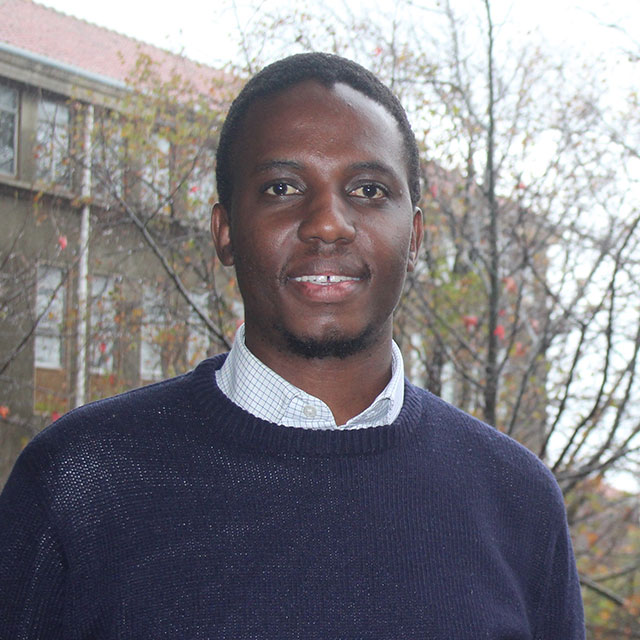
Dr Elias Phaahla (31) dreams of a new South Africa – the South Africa envisaged by former president Nelson Mandela – and continuously strives towards playing his part in making this dream a reality.
Elias, a lecturer in the Department of Political Studies at the University of Cape Town (UCT), obtained both his master’s and PhD degrees in international studies from Stellenbosch University (SU).
As an academic and researcher he is passionate about social justice and interested in understanding why South Africa is still struggling with socio-economic issues such as poverty and inequality. That’s why he enrolled for a degree in political science when he left his home in Limpopo for Wits in 2005, even though he originally planned to study law.
After obtaining his undergraduate and honours degree at Wits, Elias was awarded a Mandela Rhodes Scholarship. This scholarship is awarded to individuals that reflect a commitment to the principles of education, reconciliation, leadership and entrepreneurship, for postgraduate study at a South African university or tertiary institution.
Elias chose to step out of his comfort zone and enrolled at SU in 2009.
“From an education perspective it was a fantastic experience. I had wonderful lecturers and received fantastic support. Socially it was a strange place and I found it hard to be assimilated into the social fabric. But I didn’t experience it as a hostile environment; in fact I found it quite welcoming.”
In 2015, he joined the foundation that celebrates the legacy of his role model – anti-apartheid activist and liberal politician Helen Suzman – as a researcher. At the Helen Suzman Foundation he was responsible for two research projects: ‘What the state does for the poor’, looking at state expenditure and how it alleviates suffering through the pension grant system; and ‘The success and failures of Eskom’, looking at how the government has failed to deliver on its electricity obligations. During this time, he gave several interviews and wrote several opinion pieces with specific reference to load shedding and how the increased costs of projects like Medupi and Kusile had put further stresses on Eskom’s ability to produce power.
From 2016-2017 he was a programme coordinator at the SA BRICS think tank, functioning under the auspices of the National Institute for the Humanities and Social Sciences (NIHSS). In 2017 he was included in the Mail & Guardian’s annual 200 Young South Africans supplement.
He joined UCT in January 2018 as a lecturer in politics, comparative foreign policy analysis and advanced political economy. His aim is to encourage his students to become critical thinkers and to use their abilities and skills to make a difference in South Africa.
Quoting the words of the Freedom Charter, Elias firmly believes that South Africa belongs to everyone who lives in it – black and white.
“But that means everyone has equal responsibility to make this country work – to make South Africa great,” he adds.
- By Pia Nänny -